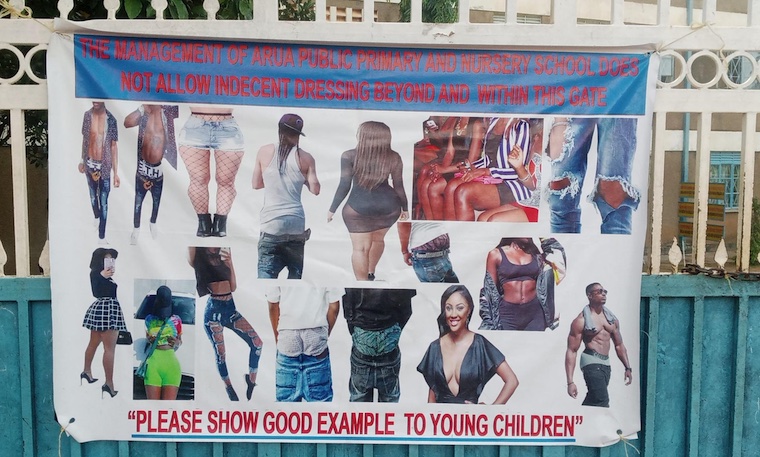Several primary schools in Arua city, northern Uganda have launched campaigns against what they describe as indecent dressing among parents and students.
This initiative aims to address concerns about the influence of inappropriate dress, often associated with urban lifestyles, on young students. Arua Public Primary School, which serves over 2,000 pupils mainly from the city centre, is among the schools actively implementing this campaign.
Alfred Amati, the school’s deputy head teacher, emphasized the importance of instilling moral values, particularly given the school’s urban location where students are often exposed to a range of influences.
"If you're not dressed to the standard we want, we cannot allow you to come in because we want our children to lead by example, and our parents, you have to dress decently before them. One of the challenges facing us is our location, people surrounding us in the middle of the city, they do things the way they like but we have to at least take some control, we're aware that some of these inappropriate dresses are there in homes in town, wherever they move but when they come here at school, they must do the right thing. That is why we're a school," said Amati.
Joseph Odama, a parent at Arua Public Primary, praised the initiative, suggesting that parents who dress inappropriately should be denied access to school premises to reinforce positive examples for children.
"These are institutions that are meant to nurture our children and as a parent," said Odama. "And when a child sees you putting on a dress that correlates with the manner that you're trying to portray in public, this child can also in turn imitate what you're doing. You know the current world is messed up with so many things," said Odama.
Khalsum Abdu, a PTA member at Najjah Primary School and the secretary for social services at Arua City Council, noted the erosion of cultural values in West Nile due to unchecked lifestyle trends, including inappropriate dress.
"We're making our culture to fade. You find a parent putting on a dress which does not convey her to be called a parent. So what do you expect the child to do? We should revive our decent dress code.
Copy those [cultures] that can comply with your culture, which can improve on your culture. Like for us in our culture, you're not supposed to see someone's breasts that is why there is high immorality rates. And we as women activists, here we're fighting against sexual gender-based violence and yet we have failed to see what indicators are those accelerating the vice, indecent dressing is the one," said Abdu.
Arua’s senior education officer, Zilly Buuza, voiced concerns about the indirect risks posed to children when parents adopt revealing styles, which children may emulate. Currently, more than ten schools are running these campaigns, with plans to expand the initiative to additional schools in the coming academic year. By URN/Th Observer






